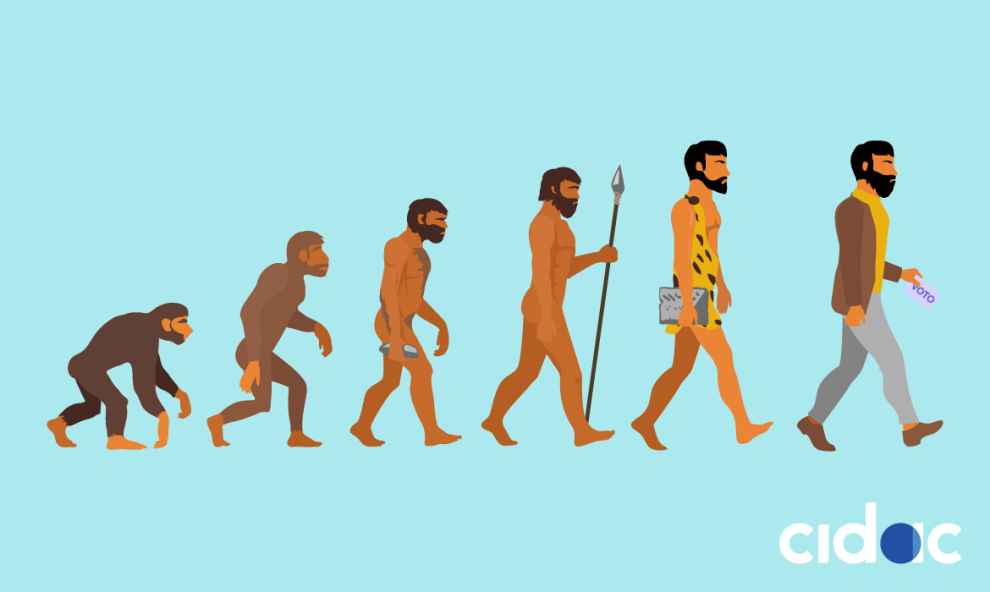Could it be that we find ourselves witnessing one of those seismic moments of radical change one reads about in history books but that only occur in real life exceptionally? The world constructed after the end of the Second World War seems to be crumpling one bit at a time. The manifestations and symptoms are ubiquitous, but the big question is whether this is about a moment of catharsis that questions the status quo, only to later return to normality or whether, in reality, we are beginning to see the end of an entire era.
The signs are everywhere: voters in France, the U.S., Spain and Mexico reveal themselves in unusual and atypical forms, but all in the same direction: contempt for and rejection of what exists. Thus we can explain phenomena such as that of Marine Le Pen in France, Sanders and Trump in the U.S., El Bronco in the Mexican state of Nuevo León and the Podemos party in Spain. People are angry and display this through their vote.
On its part, the world economy no longer responds to the strategies that, for decades, achieved radical transformations, and for the better, around the world. The World Bank, the International Monetary Fund, the European Union and the orb’s central banks strive to solve the crisis of the last years but appear incapable of dealing with the depth of the convulsion that exploded in 2008. Some of these institutions champion orthodox solutions, others have become paragons of heterodoxy, but the growth rate of the world economy continues to be pathetic.
The claim of stagnation in incomes is universal; the advance of technology, above all robotics, displaces jobs that formerly seemed permanent and immovable. People in the South migrate to the North seeking better possibilities, in some cases due to the total absence of an alternative (as occurs in Sudan and Syria), or others simply in pursuit of better opportunities. Regardless, this massive movement of people has consequences, as Brexit exemplifies.
During the last decade we have witnessed the disintegration of authoritarian regimes and the collapse of dysfunctional political systems. The so-called Arab Spring came and went, leaving instability and violence in its wake. Yemen’s government collapsed while others attempted to regenerate themselves. In Guatemala the government failed and the Brazilian president is being impeached; it will probably not be long before something similar happens in Venezuela. The planet is experiencing spasms anywhere and everywhere.
The imbalance that the world is undergoing is omnipresent and all-inclusive. Some countries have governments in form that respond, or endeavor to respond, to the challenge of growth and stability; others simply retire into their shell, trusting that divine providence will rescue them. China is striving to undertake the most complex transition that any nation has ever attempted: that of going from a manufacturing-for-export platform to one based on consumption, in a few years. Singapore is the sole country that, with unique clarity of course, has accomplished a similar transformation, but this is a city-state, highly homogeneous and with a small and extremely well-educated population. China is a nation of monumental dimensions of hundreds of millions of poor and alienated peasants who have not been integrated into modern life.
Brazil is living through a strange combination of strong institutions on the judicial side, with weak checks and balances between the executive and the legislature. Some decades ago a president was removed there and the nation now finds itself in a similar tessitura. If the present crisis is resolved well and an effective system is erected against corruption and impunity, Brazil will emerge strengthened and more democratic; if, contrariwise, it turns out that this was more a dispute among counterpoised interests than a true attempt at nation building, an extraordinary opportunity will have been allowed to get away.
The opportunity of the Mexican government in matters of corruption is not a lesser one: instead of diluting the existing proposal, it would be better to take the bull by the horns and launch a true transformative system that severs itself from the past, even if that implies the exoneration of any past corruption. A new paradigm is clearly called for and moments of crisis are unique for implementing one.
The crisis of the postwar-era institutions can likewise conclude in a radical redefinition as well as in minor adjustments. Something of which I have no doubt is that those with a better capacity of adaptation, as well as flexible institutional structures, will come out better. Germany surely will emerge better than Greece and Tunisia better than Libya. The question-at-hand is how Mexico will end up.
The materialization of numerous candidates in each party -many not traditional and some independent- suggests that the existing structures lack the capacity for response, but also, simultaneously, that players are adapting, identifying ways of getting ahead. The reverse side of each problem always encompasses an opportunity.
Shortly before he died, Steve Jobs said something that is absolutely applicable to the current moment: “Innovation has nothing to do with how many R&D dollars you have. When Apple came up with the Mac, IBM was spending at least 100 times more on R&D. It’s not about money. It’s about the people you have, how you’re led, and how much you get it”.
Paradigms and problems change, but the only thing that matters is the clarity of the moment, the capacity to construct and respond, as well as the flexibility to do it in opportune fashion. Where do you think Mexico stands before these conundrums?
@lrubiof





Comments